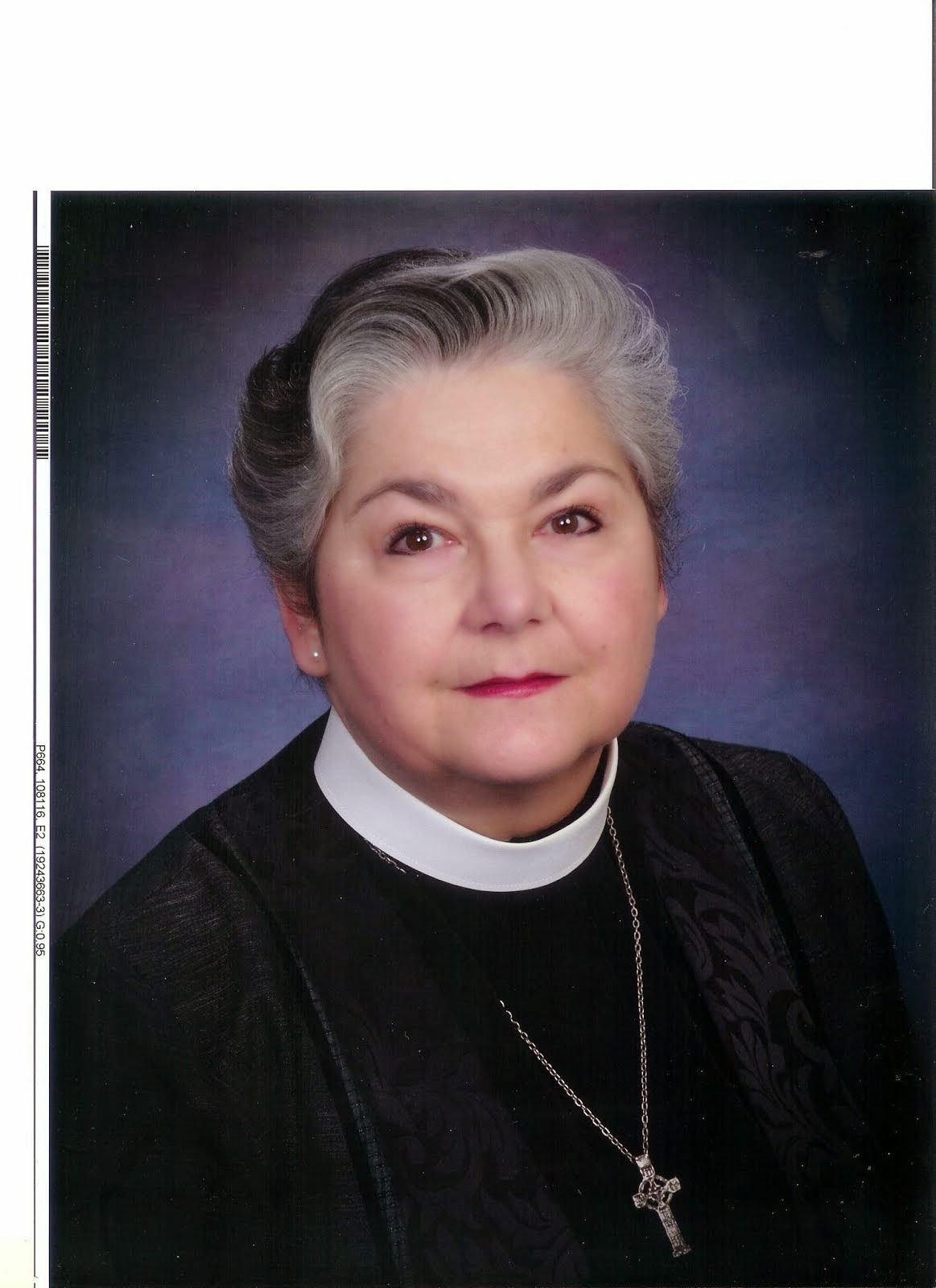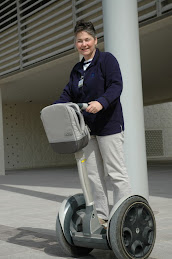Today we hear the story of Dives and Lazarus, the first a man of great wealth and success, the second a man of poverty and illness.
You can picture Dives, the rich man, in the story, can’t you? A little overweight, self-satisfied, a self-made man. A successful man. Big house, lots of livestock, maybe a couple of wives – the Donald Trump of his era. Maybe even the same bad comb-over!
And you can picture Lazarus. Smelly, dirty, probably skinny and missing a couple of teeth…looks a lot like the guys we see at the street corners with their little cardboard signs, begging for money.
You know how the story goes well enough. Dives the rich fellow, doesn’t help out the poor beggar Lazarus. The beggar dies and is promptly taken through the heavenly gates. Shortly thereafter, Dives dies.
Where does he go? Not to heaven, but to Hell, where he suffers from the eternal flames of those who are punished. Not what he expected, I’d bet.
I wonder what went through his mind when he arrived down there where the usual temperature is hotter than Richmond in August.
“Gee, this isn’t right. Why am I down here? Don’t they know that I’m an important guy? Don’t they know that I was a hard-working good fellow whom everybody loved? Well, maybe not everybody…my employees didn’t always think I was so great, but that’s because they were lazy sons-of-guns who didn’t do all I expected of them. Maybe if they had been hard-working like me, if they had built their business like I had, they would have been successful, but they were just uneducated fools who didn’t know how to work. I made sure that the managers of the fields put the whip to them when they didn’t do what I expected! That’s how I got to be as successful as I am.
“So this must be some sort of mistake, this relocation to Hades. Boy, I expect that when St Peter discovers I’m down here, somebody’s going to pay for that mistake! Don’t they know how important I am?”
And he looks up, and way far away in the distance above him, he sees that smelly beggar, Lazarus, sitting with Father Abraham up in heaven. Lazarus looks different now. Clean and healthy, and glowing with the joy of sitting right next to Father Abraham.
Dives thinks, “Now I KNOW something is wrong here! That stinky beggar Lazarus is up there. That’s not right. He’s in my place. I should be up there where all the good people, all the successful people, should be. The nice place, not down here where it smells like rotten eggs and sweaty people and the food is miserable – and they don’t even have room service here.”
“It’s all a mistake. People like him shouldn’t be up there…only people like me who deserve the best! I’ll fix this…but I’d better be careful. I don’t know how father Abraham will feel about being told he’s made a mistake!”
So Dives carefully arranges himself in a proper posture of supplication, and called up there to the cool blue place so far above him:
“Father Abraham, oh, Father Abraham! Your humble servant Dives here…you know, the wonderful warm human being who employed so many workers and did so much for the community on earth? Remember me? I was the toast of the town back there, but now I’m down here (cough, cough) and I’m sure you understand that I’m just dying of thirst. It’s a wee bit warm here, you know (a nervous little titter here). Could you, would you, send my old pal Lazarus down here with a little ice water – yoohoo, Lazarus, remember me? You always liked to hang around my front door? You weren’t hanging around, you were begging for a crumb of food, you say? Silly Lazarus, you were just FINE, weren’t you!”
And Lazarus looks down now and sees Dives in that hot, hot place. Dives doesn’t look quite as plump as he used to. Perhaps the heat has melted some of that body fat. He’s got blisters, and is tongue is swollen from lack of water.
“Ummm, no, actually. I wasn’t. I was pretty miserable. I was sick and homeless and hungry and thirsty. I kept asking you for just a little something. You alternated between ignoring me and being cruel to me. You said ‘if you were a real man, you’d get a job, make something of yourself, you lazy clod.’ And now you want me to bring you a cool drink?” even though he’s in the cool place, Lazarus is getting a little bit, well, steamed.
But before he can say anything more, Father Abraham steps in.
“Is that you, Lazarus? You who were so well-fed and oiled and groomed on earth? I can hardly recognize you! It’s warm down there, isn’t it? You’re a little sweaty…did you know that? Very unpleasant! Very different indeed! But that’s the way it works. You had your pleasure when you were on earth, as a living human being. Lots of money, lots of success, food water, servants, all the marks of earthly wealth. It was fun…but now it is over. Now you are in a different place. You used up all the pleasure in your earthly life. Now you have none. But Lazarus here, his life on earth was hard. No pleasure, no servants. Only scorn and hunger and illness. No wealth. And you, who had so much, wouldn’t share the least little bit of it with him. You called him names, said he was lazy. But he wasn’t lazy – he was ill with hunger. And his father didn’t have great property to leave him, as yours did to you. And he didn’t have tutors to educate him, as you did. No pleasure or success or wealth for him! And now, his earthly suffering is over, and he is given the reward for that suffering – a place here, where the pleasure and comfort and joy are eternal. Sorry, Dives. You made your choice. Perhaps if you had been more kind, more generous, things would have been different.”
Dives sees all too clearly what is happening here. His heart sinks. He knows that Lazarus isn’t going to bring him that cold drink. He knows Father Abraham isn’t going to send down the angels to rescue Dives and bring him up to heaven. He is stuck here, for all eternity.
And he grieves his foolishness. How could he think that his wealth on earth was all his doing? It was God’s, of course. Yes, he worked, but he also had so much given to him that made it possible…and now it is all gone.
But, even if he cannot change his own situation, he can do something for his family, for his brothers, who are living just as Dives had lived, enjoying the lush life with little attention to those who are less fortunate. So he – now timidly – calls up again:
“Please dear Father Abraham, if you wouldn’t mind – could you send Lazarus to tell my brothers about what happened to me? I would hate to see them suffer as I am now suffering.”
Abraham sighs. “You do not understand, do you? They, like you, heard the words in the temple, the words telling them to live differently. And still they do not do it.”
“But if Lazarus, this beggar who died, went to tell them, they would be frightened, and they would repent!”
“Too late! If they didn’t listen to the words of the prophets before, they don’t get a second chance!”
And Dives sits down on a hot coal. He would weep if he had any moisture left in his body to produce tears, but it is not so.
Dives, who had so quickly assessed Lazarus on earth as someone who was less than him, someone useless, someone not deserving of care and comfort. Dives, who thought he was important because of the money in his treasury, the livestock grazing his fields, and the grain in his silos. Dives, the self-made man who thought that his success was entirely of his own making, and disdained those who were less fortunate.
He measured himself in earthly terms, didn’t he? And by earthly terms, he looked pretty successful. But for all his wealth, he was poor…poor in spirit. He was poor in his understanding of what God expected of him. He was poor in his generosity to those who had not had his advantages. He was quick to judge, whether he was judging the beggar Lazarus, or his workers, or his neighbors. Would that he had been as quick to be kind!
The country singer Hank Williams wrote a beautiful song about this story:
Only a tramp was Lazarus’ sad fate
He who lay down at the rich man's gate
He begged for the crumbs from the rich man to eat
He was only a tramp found dead on the street.
He was some mother's darlin', he was some mother's son
Once he was fair and once he was young
Some mother rocked him, her darlin' to sleep
But they left him to die like a tramp on the street.
Williams, himself a troubled man, knew about living the Lazarus life. He knew the Dives life, too – he had enjoyed great success in the music business. So he knew what Jesus was talking about in this story:
Jesus, He died on Calvary's tree
Shed His life's blood for you and for me
They pierced His side, His hands and His feet
And they left Him to die like a tramp on the street.
He was Mary's own darlin', he was God's chosen Son
Once He was fair and once He was young
Mary, she rocked Him, her darlin' to sleep
But they left Him to die like a tramp on the street.
And he also knew the cost, if we don’t pay attention:
If Jesus should come and knock on your door
For a place to come in, or bread from your store
Would you welcome Him in, or turn Him away
Then God would deny you on the Great Judgement Day.
Our middle-schoolers are about to start work on their Sunday school program for the year, and the focus of their lessons this year will be the corporal works of mercy. Feeding the hungry, providing water to the thirsty, clothing the naked, shelter for the homeless…you know these things that Jesus told us all to do. They will be learning different ways to ac directly opposite to the way that Dives acted. They will learn the great gift of sharing and caring and loving those whom others might see as weak, or stupid, or lazy, or troubled. They will learn what I hope you already know: that all you have is a gift from God’s bounteous love for you.
You know that God watches how you use the gifts given to you. Do you share them? Do you use them to spread the Good News? Or do you think they are simply for your own personal use? The tramp on the street, the one who smells bad, who looks drunk…who is he? What does Jesus want you to do for the tramp, and for Jesus? As our middle-schoolers will do this year, let’s live each day as though that tramp is Jesus. Let’s make decisions in our actions as though the Judgment Day is tomorrow. We can step away from that behavior that we saw in Dives, the rich man. We can live those corporal works of mercy, in gratitude for all God has given us. The prophets among us – and they may be middle-schoolers – will remind us!
Amen.







